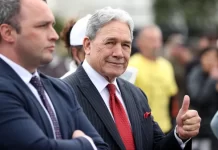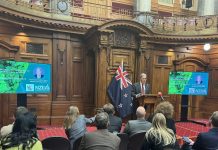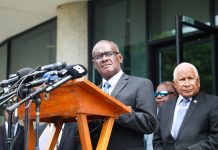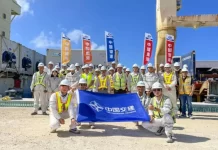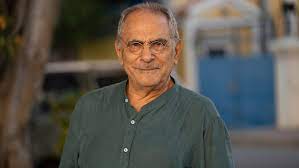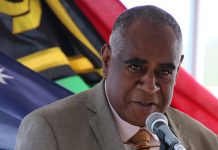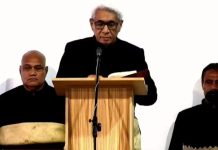The President of Timor-Leste José Ramos-Horta has suggested that Chinese diplomats turned down requests to develop police and military infrastructure in his country because they were worried about drawing an “overreaction” from Australia.
Some Australian politicians expressed alarm when China and Timor-Leste struck a new comprehensive strategic partnership during a visit to Hangzhou by Prime Minister Xanana Gusmao last month.
The new partnership focuses largely on building food self-sufficiency and infrastructure in Timor-Leste, as well as bolstering trade ties, but includes a section on enhancing “high level military exchanges” as well as strengthening cooperation on “joint exercises and training”.
Ramos-Horta told the ABC that Timor-Leste was only focused on securing more Chinese assistance for its key development priorities — not military cooperation.
He also said that Beijing had deliberately turned down opportunities to help develop defence infrastructure for fear of Australian “sensitivities”, and out of “respect” for Canberra’s desire to maintain its primacy as a security partner in the Pacific.
“I have to say, in credit to China, we could have had more Chinese support for instance in infrastructures to our defence forces, to our police force,” he told RN Breakfast.
“And sometimes when I chat with the Chinese about increasing their support to our police force, like building our whole compound, they’d say they’d be willing to do it, but they’d be concerned about the overreaction, or potential overreaction in Australia and elsewhere.
“So, the Chinese are actually sensitive to the sensitivities of our neighbours. So, they are more respectful of Australia’s position than Australia is of the Chinese position.”
Australian officials have been monitoring China’s moves in Timor-Leste, while anxieties in Canberra about Beijing’s strategic ambitions in the Pacific have intensified as Beijing tries to cement security ties with Solomon Islands.
But Ramos-Horta has repeatedly insisted that Australian government officials and intelligence operatives are not worried about the new partnership because they “understand” Timor-Leste has no desire to build a security relationship with Beijing.
“The Australian government, those in government dealing with information day to day, who deal with us day to day, and Australian intelligence that normally, [in] their work, deal with us every day, they know well Timor’s position, so they are not worried about it” he told RN Breakfast.
Australia said last month the new partnership was “a matter for Timor-Leste and China” and stressed it “respects Timor-Leste’s sovereignty and ability to make its own choices”.
But some federal government sources have privately bridled at Ramos-Horta’s public characterisation of Australia’s attitude towards the pact.
One government source also cast doubt on his portrayal of China’s ambitions in the region, pointing to Beijing’s determined attempts to embed itself as a major security player in Solomon Islands.
“This is not exactly the behaviour of a government which is deferential to Australian security interests,” they said.
But Michael Leach, a professor in politics and international relations at Swinburne University of Technology told the ABC that a number of Pacific states had faced domestic political disputes over intensifying strategic competition in the region, and China might be wary of being drawn into a similar controversy in Timor-Leste.
He also said Timor-Leste was unlikely to rapidly build political and security ties with Beijing in the same manner as Solomon Islands under Prime Minister Manasseh Sogavare.
“Timor-Leste really does have a friends to all policy. They’ve said that for many decades now and their actions always reflect that,” he told the ABC.
“They’re not becoming too reliant on any one neighbour or partner. But that doesn’t mean they’re suddenly flying off into the arms of other countries. This is a form of multilateral balancing.”
Ramos-Horta also used his interview to give a bullish assessment of stalled negotiations over the Greater Sunrise field and Timor-Leste’s ambitious Tase Mane project.
The president and Gusmao have been pressing Australian energy giant Woodside to pipe gas from Greater Sunrise to Timor Leste for processing, rather than to Darwin.
“There is a much better climate between us and Australia,” the president said.
“I don’t enter into details because this is up to Prime Minister Gusmao and Anthony Albanese, but we are going to find, very soon, early next year, a solution for the development of Greater Sunrise,” he said.
SOURCE: ABC NEWS/PACNEWS


